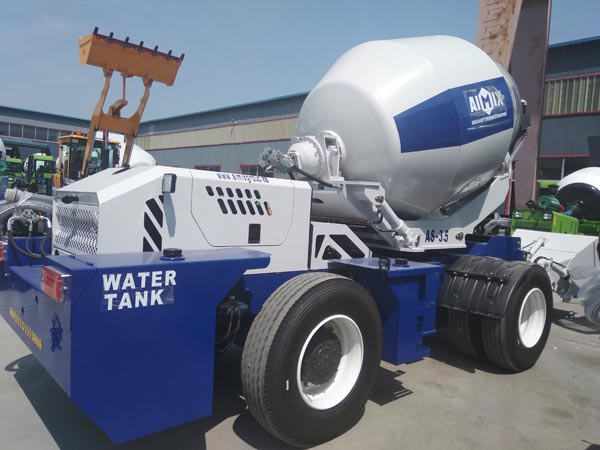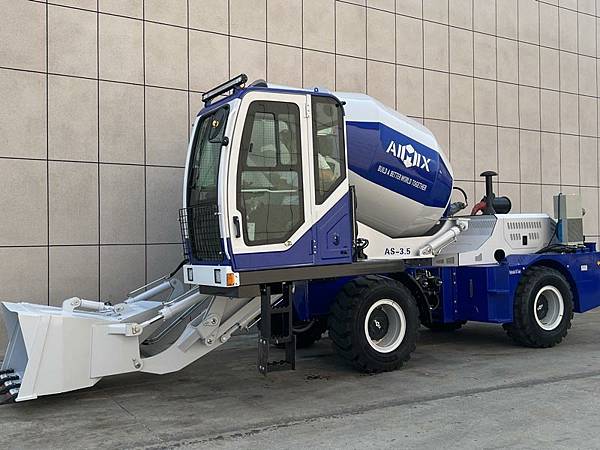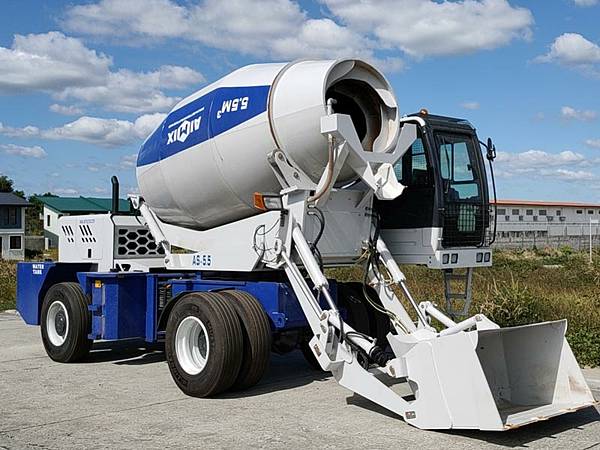


Understanding the materials they can manage helps customers make informed decisions.
Concrete self-loading mixers have become indispensable in the construction industry. They offer efficiency, versatility, and convenience. But what materials can a concrete self-loading mixer handle? This article explores the different materials these mixers can manage, providing valuable insights for customers.

Concrete self-loading mixers primarily handle materials used in concrete production. These materials include cement, sand, aggregates, and water. Each component plays a crucial role in forming quality concrete.
The mixer combines these materials in precise proportions. This accuracy ensures consistent concrete quality. Let’s delve into each of these primary materials in detail.
Cement is the key binding material in concrete. Self-loading mixers can handle various types of cement. These include Portland cement, rapid-hardening cement, and sulfate-resisting cement.
Portland cement is the most commonly used type. It provides the necessary strength and durability. Rapid-hardening cement is suitable for projects requiring quick setting times. Sulfate-resisting cement is ideal for environments with high sulfate exposure.
Sand is another essential material for concrete production. Self-loading mixers can handle different types of sand. These include river sand, crushed stone sand, and manufactured sand.
River sand is naturally occurring and provides good workability. Crushed stone sand offers a more angular shape, enhancing concrete strength. Manufactured sand is produced through crushing and offers consistent quality.
Aggregates form the bulk of the concrete mix. Self-loading mixers can handle various types of aggregates. These include coarse aggregates like gravel and crushed stone.
Gravel provides smooth and rounded particles. It enhances workability and reduces water demand. Crushed stone offers angular particles, improving concrete strength and durability.
Water is a crucial component in concrete production. Self-loading mixers can handle water from different sources. These include potable water, recycled water, and treated wastewater.
Potable water is commonly used due to its purity. Recycled water is an eco-friendly option, reducing water consumption. Treated wastewater can also be used, provided it meets quality standards.
Admixtures are additives that enhance concrete properties. Aimix Self-loading mixers can handle various types of admixtures. These include plasticizers, accelerators, retarders, and air-entraining agents.
Plasticizers improve workability without increasing water content. Accelerators speed up the setting process. Retarders delay the setting time, useful in hot weather conditions. Air-entraining agents introduce air bubbles, enhancing freeze-thaw resistance.

Besides primary materials, self-loading mixers can handle specialty materials. These materials provide specific properties to the concrete mix. Examples include fibers, pigments, and supplementary cementitious materials.
Fibers enhance concrete’s tensile strength and crack resistance. Pigments add color to the concrete, useful for decorative purposes. Supplementary cementitious materials like fly ash and slag improve durability and sustainability.
Fibers are added to concrete to enhance its properties. Self-loading mixers can handle different types of fibers. These include steel fibers, polypropylene fibers, and glass fibers.
Steel fibers improve tensile strength and impact resistance. Polypropylene fibers enhance crack resistance and durability. Glass fibers provide high tensile strength and are alkali-resistant.
Pigments are used to add color to concrete. Self-loading mixers can handle various types of pigments. These include synthetic pigments and natural pigments.
Synthetic pigments offer a wide range of colors and consistent quality. Natural pigments provide earthy tones and are environmentally friendly. Both types of pigments enhance the aesthetic appeal of concrete structures.
Supplementary cementitious materials (SCMs) improve concrete properties. Self-loading mixers can handle various SCMs. These include fly ash, slag, and silica fume.
Fly ash improves workability and reduces permeability. Slag enhances durability and sulfate resistance. Silica fume increases strength and reduces the risk of alkali-silica reaction.
Concrete self-loading mixers can handle a wide range of materials. These include primary materials like cement, sand, aggregates, and water. They can also manage specialty materials like fibers, pigments, and supplementary cementitious materials.
The ability to handle diverse materials makes self-loading mixers versatile and efficient. Investing in a self-loading mixer ensures quality and consistency in concrete production.
